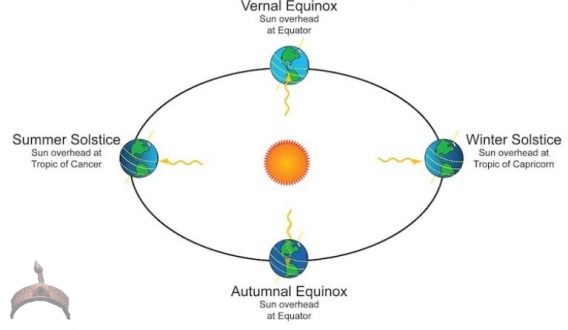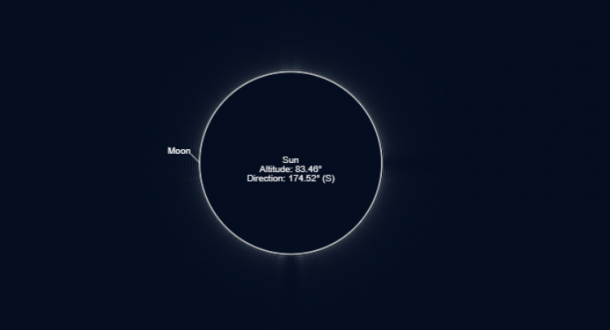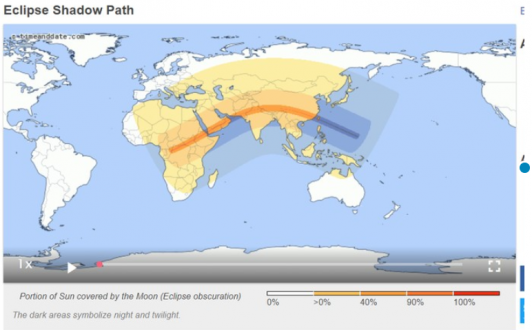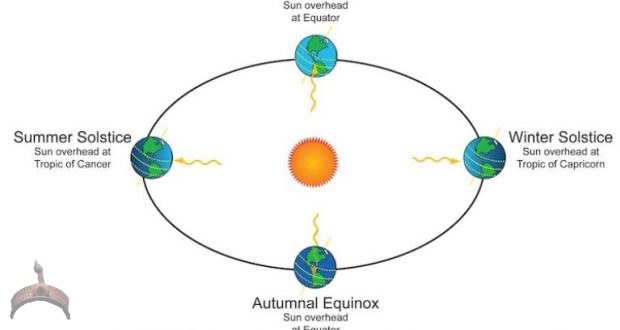For those who have been following the weather (especially children who play a lot, adults who fast, and Muslims who pray around 7 in the evening), you may have noticed that dusk comes much later, and lasts for longer.
(Dusk is the period of brief daylight after the sun has set. It marks the boundary between evening and night.)
Everywhere becomes dark around 7:30 pm or even much later, instead of around a few minutes to seven as it used to be in the past (at least, here in Lagos).
This is happening because we are close to the summer solstice, and in fact, today, June 20, 2020, is the summer solstice.
What does Summer Solstice mean?
As you should know, the earth revolves around the sun. However, the earth is not completely round and neither is its orbit round the sun.
The earth’s orbit is elliptical, which makes the distance between the earth and the sun vary throughout the year.
The earth itself is a bit flat at the north and south poles, which makes its side bulge out like a balloon that is about to burst.
The result is that, once a year, the earth positions itself such that the sun appears at its highest position in the sky in the northern part of the earth.

The summer solstice is on the left.
That day is called the Summer Solstice and is usually between June 20 and 22 every year.
However, that moment in 2020 falls on 5:44 pm EDT on June 20 (today). For us in Nigeria, that is 10:44 pm WAT (West African Time).
What happens on the Summer Solstice?
The summer solstice is always the longest day and shortest night of the year. This means we will enjoy more daylight today than on any other day of the year.
People living at the northernmost and southernmost parts of the earth will even enjoy 24 hours of sunlight throughout the day.
The summer solstice also marks the beginning of the summer season in the northern hemisphere (the northern half of the earth).
However, the reverse will happen in the southern hemisphere (the southern half of the earth) where the sun will be at its lowest point, making the summer solstice the beginning of the winter season in the Southern hemisphere.
What about the solar eclipse?
Lucky for us, this year’s solstice will coincide with a very rare solstice solar eclipse that will last from 4:45 am to 9:34 am on June 21. (The next solstice solar eclipse will only come around on June 21, 2039.)

The eclipse will look like the photo above. That is the moon covering the sun with the thin “ring of fire” line visible.
Tomorrow’s eclipse will be visible from some parts of Africa and Asia.
People living in Congo, Ethiopia, and China will see the eclipse, and so will people living in northern India, southern Pakistan, and the Central African Republic.

The eclipse will be most visible in the area that is orange in color.
Unfortunately, it appears that it will not be visible from Nigeria.
 Ọmọ Oòduà Naija Gist | News From Nigeria | Entertainment gist Nigeria|Networking|News.. Visit for Nigeria breaking news , Nigerian Movies , Naija music , Jobs In Nigeria , Naija News , Nollywood, Gist and more
Ọmọ Oòduà Naija Gist | News From Nigeria | Entertainment gist Nigeria|Networking|News.. Visit for Nigeria breaking news , Nigerian Movies , Naija music , Jobs In Nigeria , Naija News , Nollywood, Gist and more









